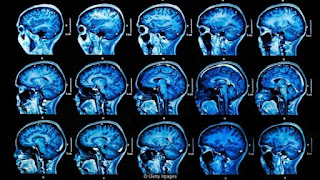New study links Alzheimer's disease with liver function and diet
Scientists have presented new research pointing to the liver
as a potential culprit in the onset of Alzheimer's disease. Presented at the
Alzheimer's Association International Conference, the research suggests that a
compound produced in the liver can confer neurocognitive protections, and when
the liver cannot effectively produce those compounds then cognitive deficits
can result in the brain.
Molecules called plasmalogens were the primary focus of the
new research. These are a class of lipids generated in the liver, and certain
types have been found to be critical for effective synaptic function in the
brain. The study set out to measure whether reduced levels of several specific
types of plasmalogens corresponded with an increased risk of Alzheimer's or mild
cognitive decline.
Over 1,500 human subjects were examined, split into three
categories: those clinically diagnosed with Alzheimer's disease, those with
clinically diagnosed mild cognitive impairment, or those healthy and
cognitively normal. The results showed statistically significant differences in
plasmalogen levels between all three groups with lower levels associated with
higher rates of Alzheimer's or cognitive decline.
"This research shows that an age-related deficiency of
plasmalogens could lead to an increased risk of Alzheimer's disease, because
the liver cannot make enough of them," says Mitchel Kling, one of the
researchers on the project.




Comments
Post a Comment